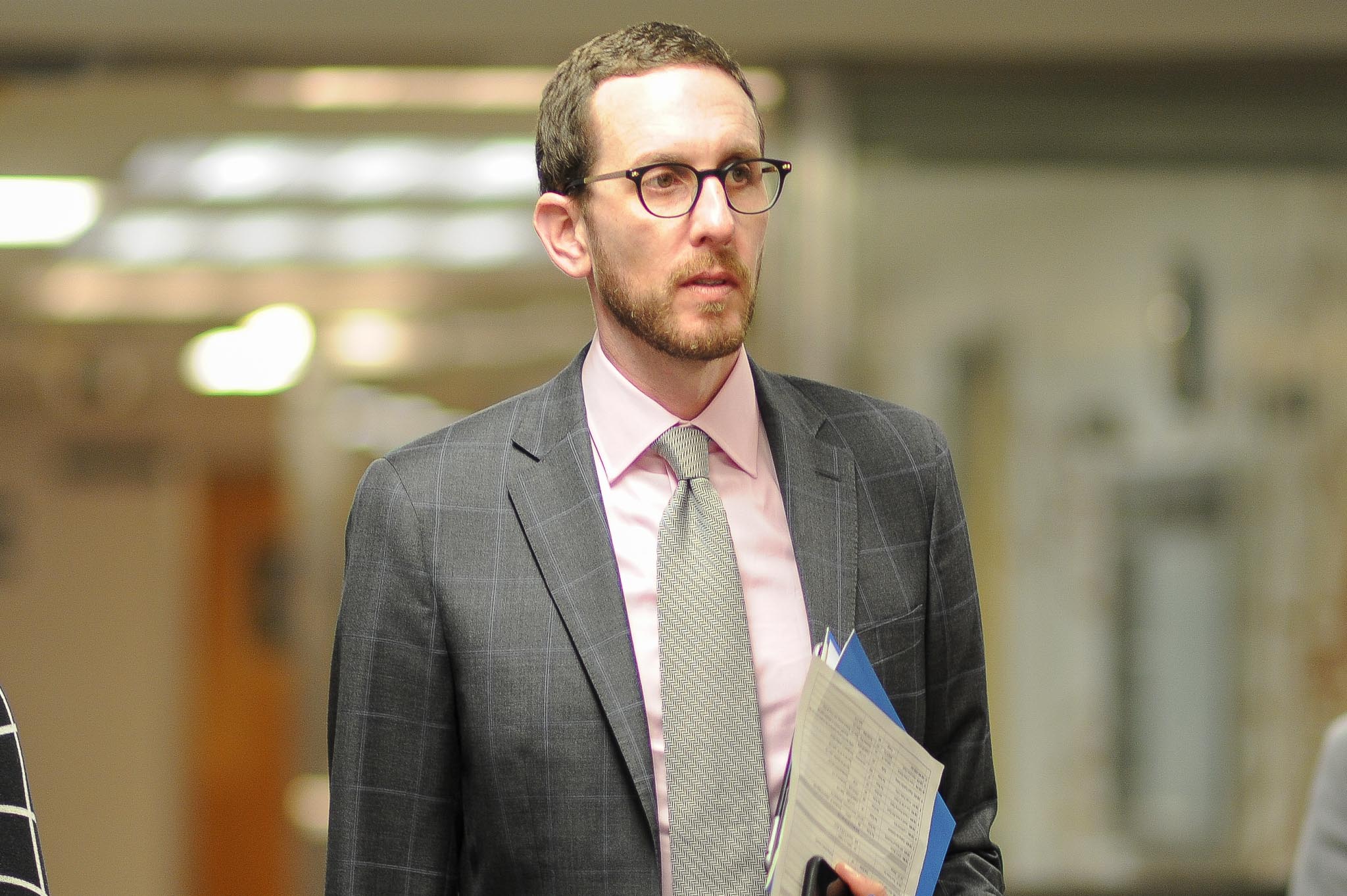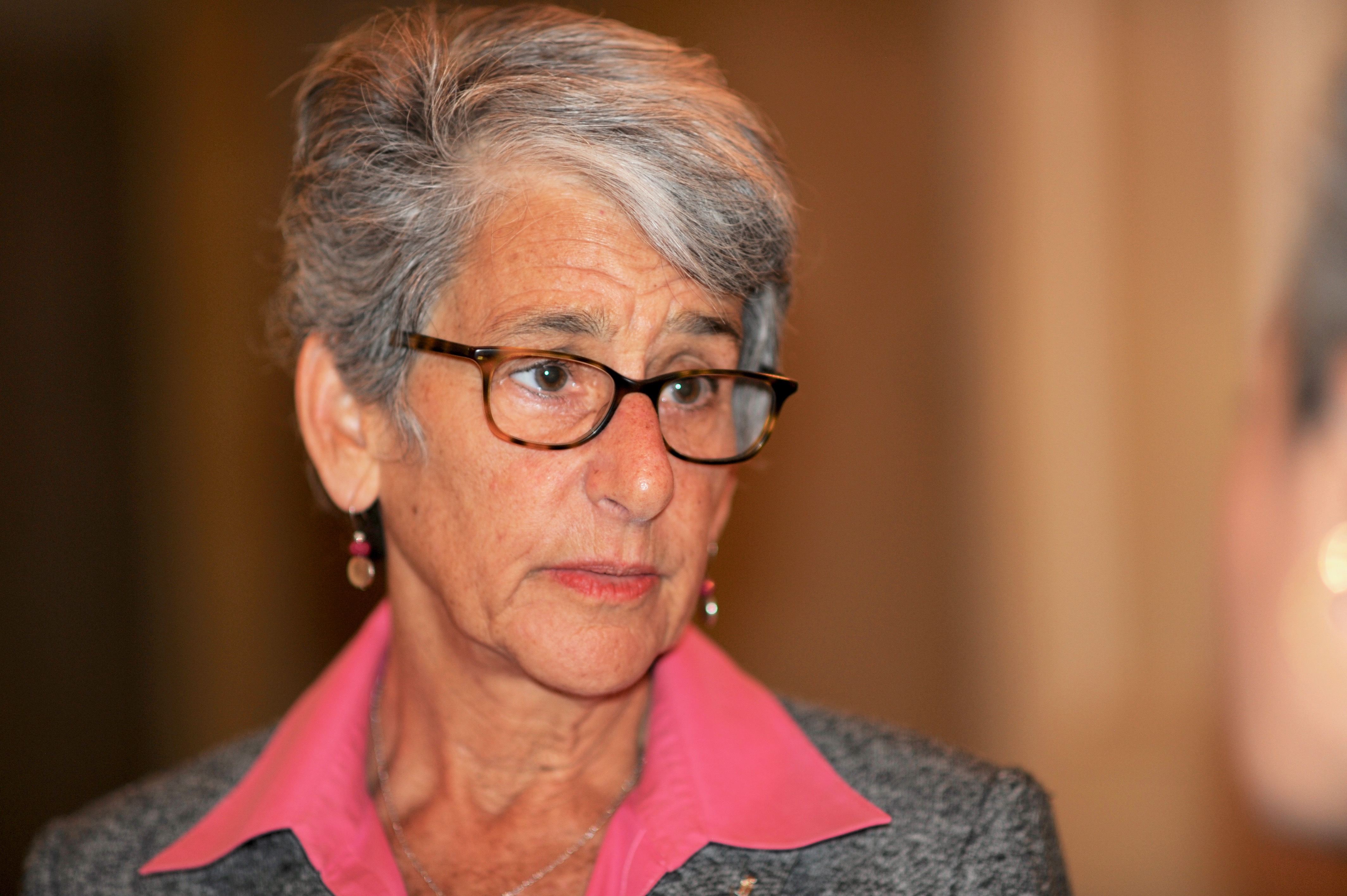
Senator Bob Wieckowski. (Photo: Kevin Sanders for California Globe)
College Savings Plan Bankruptcy Exemption Bill Passes Senate
SB 898 would stop creditors from going after Golden State Scholarshare 529 college savings plans in bankruptcy cases
By Evan Symon, June 14, 2020 7:53 am
On Thursday, the Senate approved a bill that would stop creditors and debt collectors from taking Golden State Scholarshare 529 college savings plans in personal bankruptcy cases.
Under Senate Bill 898, authored by Senator Bob Wieckowski (D-Fremont), Golden State Scholarshare 529 college savings plans would join current bankruptcy exemptions such as veterans’ benefits, alimony, unemployment, retirement accounts, and social security payments.
Scholarshare 529 college savings accounts were created in 1999 by the state to provide low-cost savings plans and portfolios to help families save for college education. Money can also be withdrawn tax-free at any time to help pay elementary, middle, or high school expenses. As it is a financial account attached to an adult, Scholarshare 529 accounts can currently be tapped by creditors to pay for a parents bankruptcy judgement.
Assemblyman Wieckowski wrote SB 898 to both protect students who are to benefit from the accounts and not hold them to their parents financial issues, as well as prepare for a rise in bankruptcies and potential college savings accounts from being depleted when temporary coronavirus bankruptcy restrictions end.
“Families across our state our facing economic hardship from the COVID-19 emergency and Senate Bill 898 will ensure that all the funds they have saved up for their children’s college education cannot be touched by creditors should they have to file for bankruptcy,” said Senator Wieckowski in a press release on Thursday. “Students seeking to better themselves through higher education should not be held responsible for their parents’ financial difficulties. College is expensive enough. This bill will add security and improve access to college for Scholarshare 529 participants.”
Supporters and education experts have also pointed out the greater need for future college students.
“Gen Xers, millenials, and now Generation Zers have been especially hard by college loans,” noted higher education expert Elizabeth Pruitt. “Those that come from families with less money or have not received scholarships have been particularly loaded with debt due to skyrocketing college costs and salaries not keeping up with average costs.”
“The Scholarshare program in California made it much easier for these students to come out of college with no or significantly reduced debt. But when it’s taken away, it can really hurt students chances of coming out of college with low debt or even getting in at all in the first place.”
“This bill would give these kids protection.”
While SB 898 was passed near unanimously 35 to 2, those opposing it have said that a personal bankruptcy should not excuse accounts that are still in the debtors name and that leaving it open would help fulfill their bankruptcy payment obligation.
“If the account is in their name and they owe money in a bankruptcy, all available unused money should be available,” explained former debt collector Malcolm Martin. “There are consequences, even in these tough economic times.”
After passage on Thursday, SB 898 is due to be heard next week in the Assembly.
- Bill to Require Law Enforcement Disclosure if AI Was Used To Help Write Reports - August 7, 2025
- Gov. Newsom Files FOIA Request To ‘Expose True Cost’ Of L.A. Federal Troop Deployment for Anti-ICE Riots - August 6, 2025
- California Redistricting: How Newsom’s Plan Will Demolish Hard Fought GOP Gains - August 6, 2025





Insightful post. Thanks for providing the information.